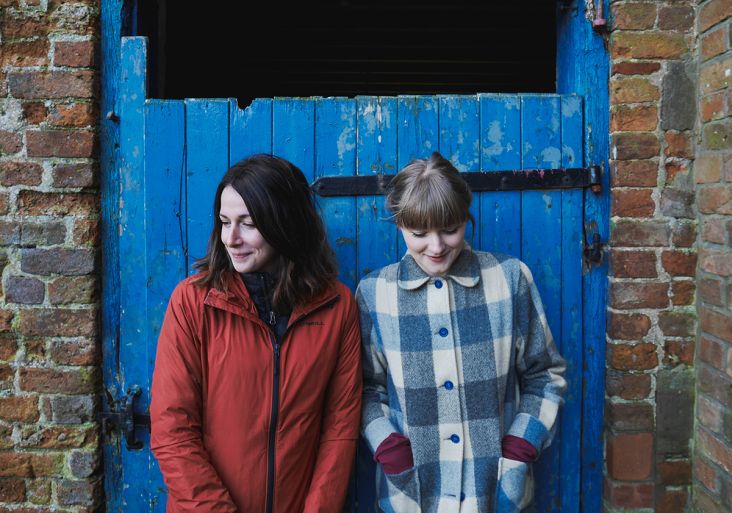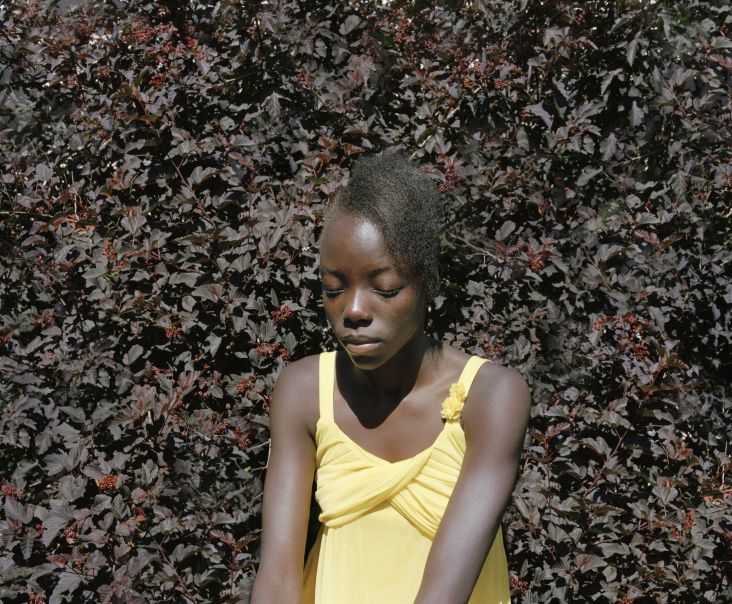Craig Oldham on honest advice for graphic designers, industry frustrations and being yourself
This April, just in time for a new wave of confused and bleary-eyed creative graduates, Craig Oldham will release his new book, Oh Sh*t... What Now?: Honest Advice for New Graphic Designers, published by Laurence King.
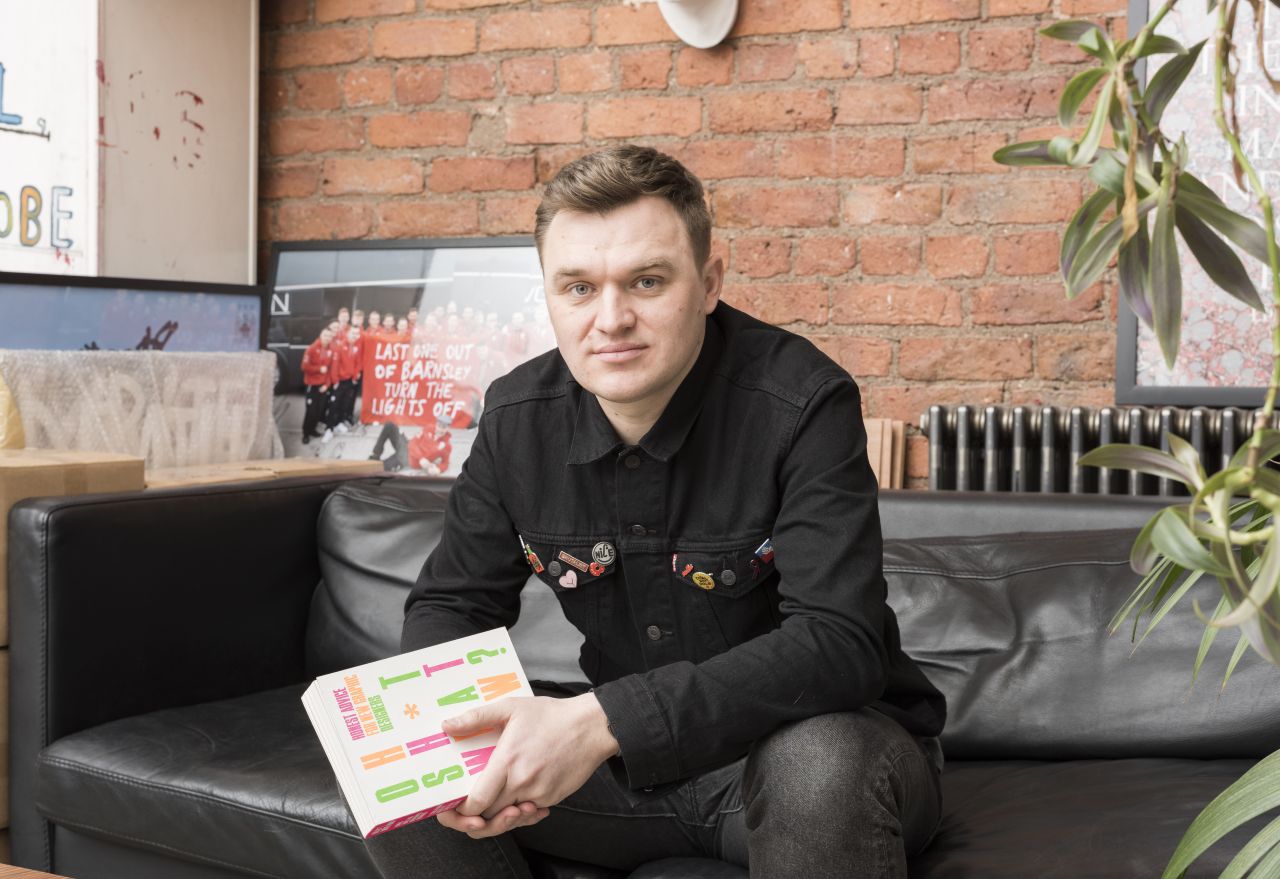
Image credit: Photographer Ivan Jones
For those fresh graduates feeling a little unemployed post-university, Craig shares his own experiences, ideas, advice, criticism and encouragement. As well as help on landing your first job, he talks about getting the second one too.
It contains profanity. Because, sometimes, working in design is "sh*t". This book will offer advice on what to do if things get hard, bad, or if you f%ck up. Like how to know when to leave a job, or what to do if you get sacked. It's painfully honest. But Craig also tells you how to boss an interview, spruce up your portfolio, or even how to set up a studio. This straightforward, funny and frequently irreverent guide is a must-read for all creative arts students.
And, because all great ideas start in the pub, the book is printed on beermat board in neon ink. We spoke to Craig about this, and much more.
What spurred you to write this book?
It was a mix of things. Ever since I gained employment as a designer, I've also been teaching in various capacities and documenting both. I tend to be quite reflective on why I do things, or why I want to, and this has manifested in many projects where I've shared my experiences with those yet to experience similar (such as students and younger people). And I've always believed in being honest about those experiences and sharing the reality of them.
I was aware of certain vacuous tendencies that tend to get perpetuated in the industry and wanted to get away from that (though some are unavoidable if you genuinely believe in them – some of which I do). Laurence King picked up on this after another book I wrote and published called the Democratic Lecture, and together we went forward with all these things in mind. But in short, I just wanted people to have a more genuine and real account of working as a designer and share my experiences in the hope that at least one person is helped by it.
Was your own career path rocky? How did you overcome particular challenges?
I'm lucky, I guess that it's been relatively smooth. That is with hindsight though; I think it's been emotionally rocky consistently as I've worked on things, and had to talk myself around more than enough times that "I can actually do this job".
Starting my own thing, the freedom and independence, has been ironically the most painful and most challenging part of my career. But it's essentially the same things that have gotten me through anything: acting on things.
I think that whether right or wrong, good or bad, as long as you feel like you have addressed an issue, then you have to accept that and move on. You work at it regularly, always, and will forever. Still, as long as you trust yourself as a person, then you can only ever look at your decisions as making the right ones for the person you were at the time you made them because worrying will solve nothing. And change nothing. Whereas acting might not solve it, at least you did something.
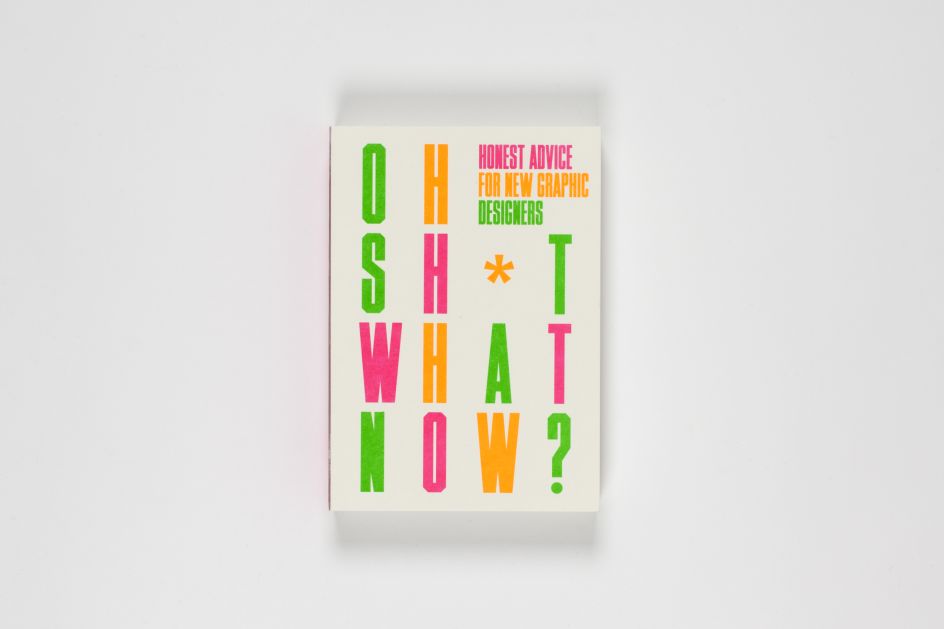
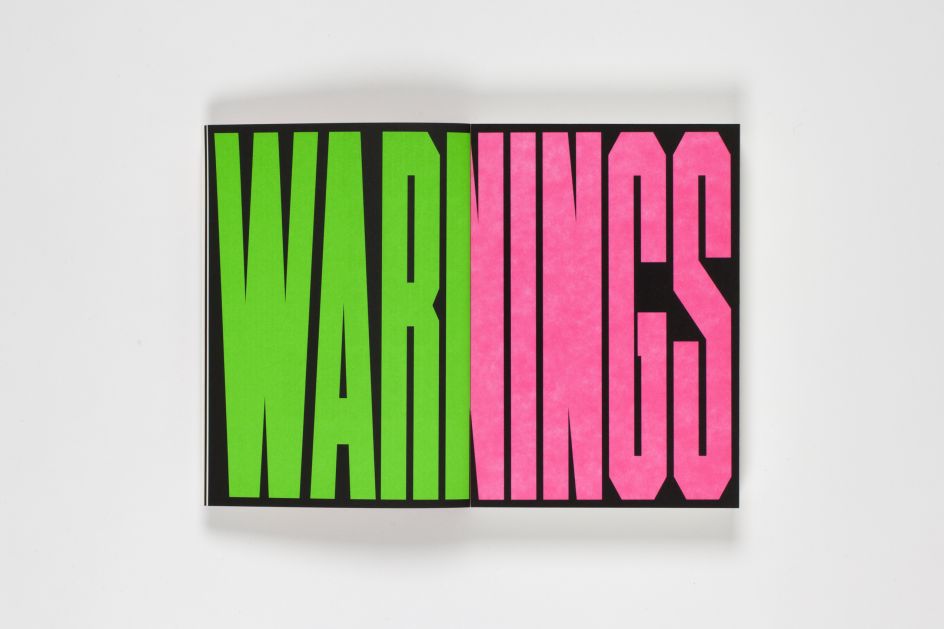
Is there any advice you've been given that's stuck with you?
There's a lot, to be honest. But the main piece of advice I always carry with me and regurgitate is from my old boss and friend Ben Casey. He said to me, as a student, "As long as you're willing to think, we can teach you everything else". That always gave me confidence and solace that design is an intellectual discipline which can have a visual output and is not primarily a visual discipline. I carry that always and offer it to everyone who asks me, even you.
What's the most honest piece of advice you offer in the book?
Oh, I don't know. I think that's really for readers to say, as honest to one won't be to another. And, of course, people will be aware more of some things than others. I think the scariest thing for me, or the thing that I was scared about being so honest about, was the fact that I contradict myself in the book. But that all humans are full of contradictions and that's OK. Everyone. But again, not everyone may be open to admitting that, or worse, are even aware they are.
Was there anything you felt you had to leave out?
The only things I left out were things where I was going into far too much detail. But my fantastic editor Gaynor saw to those!
What frustrates you about the industry today? What would you like to see change?
Many things frustrate me about it. Gender inequality has always frustrated me, as at times, it felt like you work in a boys' toilet. But I think class frustrates me too. There aren't enough women in the industry, but I want to see more working-class women also. Male or female, the industry is mainly a middle or upper-middle-class playground, and that needs to change.
Away from politics, the insecurity of the industry frustrates me. People are obsessed with size, with what others are doing, and who they are doing it for, with how clients and people perceive them and are crippled by the idea that some people might not see it as the most important thing in the world.
The hierarchical nature also does my head in, but I think again that's about insecurity really, and people feeling they need to assert power and control. And wages too, which is one that I really struggle with being a small outfit. Many industries, of course, are riddled with these issues, not just ours. But we seem to approach these passively, taking a collective view that they'll somehow sort themselves out when we need to be active. I think if we can start to address things we'll quickly be far better off.
What are the key steps graduates can take to become a success?
Confidence. It's everything. I think if you work hard and have an open learning attitude, and take value from that, regardless of grade or endorsement, then you will build momentum and that will get you over the line. It's also important to know what your line is, as everyone sets their own – or certainly should.
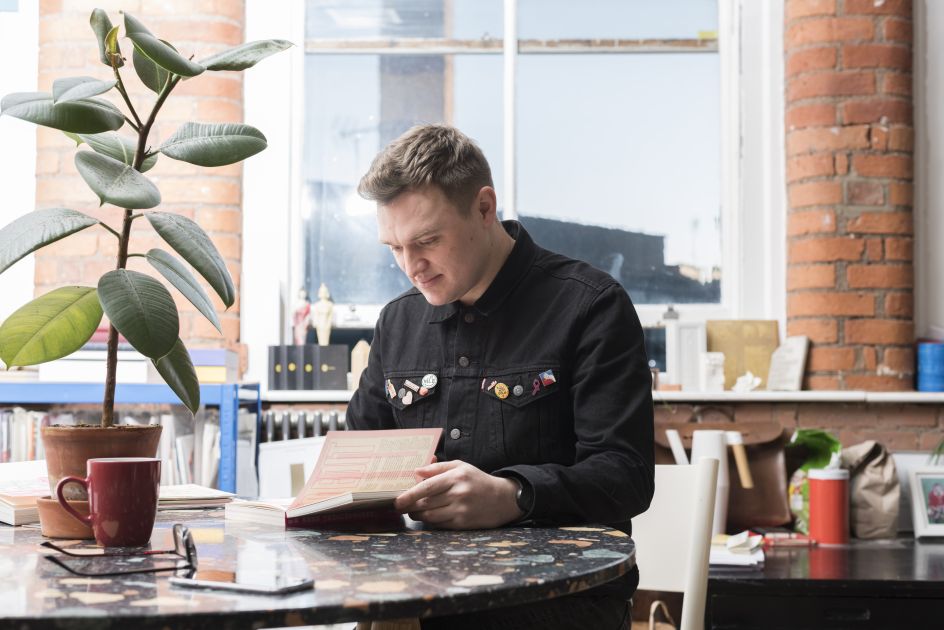
Image credit: Photographer Ivan Jones
What do you wish you'd known when you first started?
That I can be myself, that I don't have to wear black t-shirts, talk a certain way, like certain things, or whatever, to be a good designer. Being good comes from defining good for yourself. I felt like I lost a lot of time trying to fit into other people's ideas of what a designer did and was, and actually, you don't have to play that game.
Have you always been honest?
I've always tried to be, but I'm sure there are times when I've lied. In fact, I know there are: personally and professionally. But they do link to your last question, as soon as I figured out I can be myself I was far more honest and open about everything. It does sound self-centred and self-congratulatory, but I think it's a good thing, to be honest. I like that I am. And that I'm seen to be an honest person.
Is honesty a good thing? Do you think there needs to be more of it?
I think there's a difference between telling the truth and being honest. I discuss this in the book at length, so I'm not going to spoil it, but of course, honesty is good. It's about deployment, I think and using it correctly. Otherwise, you can be seen as a blunt, harsh, dickhead. There needs to be fewer of them. But I would like the industry to be more honest about itself, and what it does and can do. I think that can only be a good thing.
Oh, Shit... What Now?: Honest Advice for New Graphic Designers by Craig Oldham, published by Laurence King, will be released for sale on 2 April. For more info on Craig, visit www.craigoldham.co.uk and enjoy his fun soundboard.

















](https://www.creativeboom.com/upload/articles/51/5167d0786e1f89a450fd8765ce1c3f9c5d4c43d2_732.jpg)
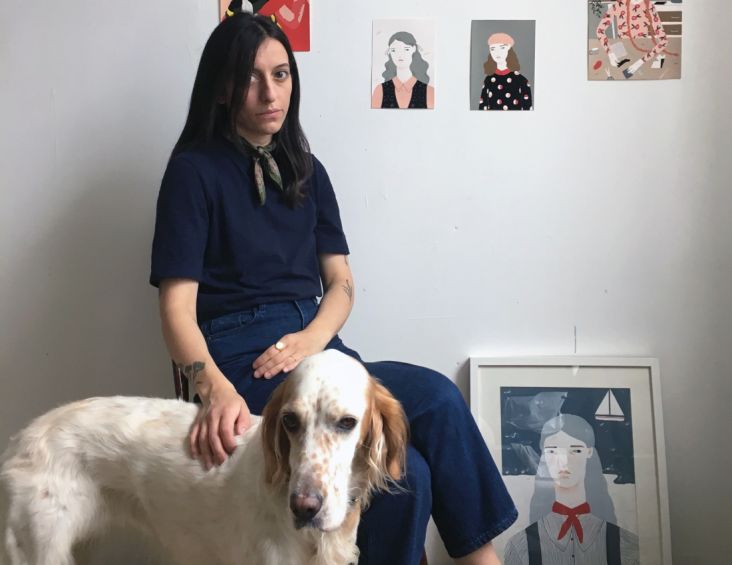
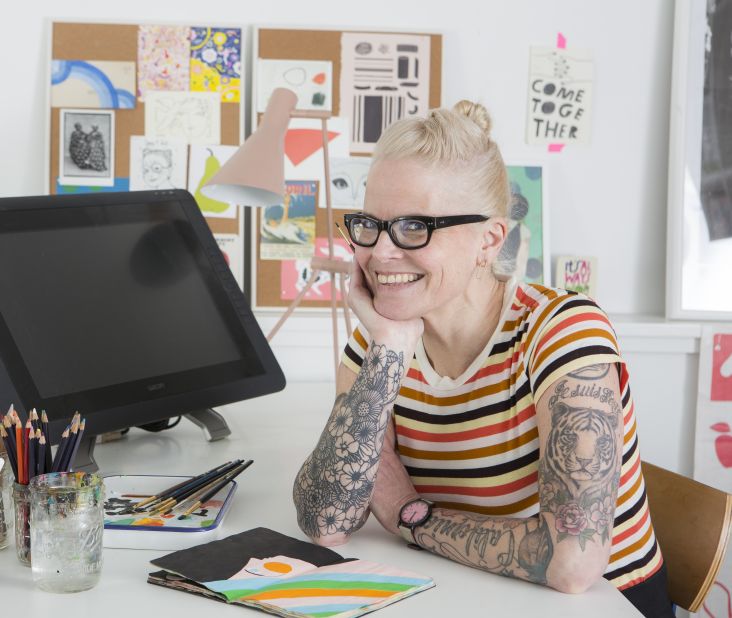
](https://www.creativeboom.com/upload/articles/4a/4ab82df8e705492baa2547376ef628c7d7c12e12_732.jpeg)
